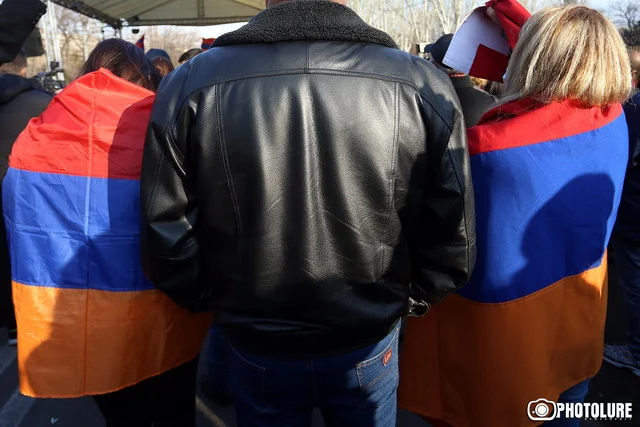I have already had the opportunity to write about how regardless of the way in which the current confrontation between the government and the opposition will end, we have a serious problem as a society, and that problem is within us. Turks, Russians, and others have nothing to do with this.
The issue does not depend on how many people take to the streets or the squares to support one side of the other. The issue is within those who are not taking to the streets, or those who do because of threats from their bosses. I consider them to be within the same group as those who stay home. The number of people who are truly fighting for the authorities or for regime change is, at least, tens of thousands. No matter how you count it, it would be less than 10 percent of those in the active age groups in Armenia. But what about the rest?
Let me attempt to describe the general picture of the average person belonging to ‘the rest.’ They are individuals who took 10-20 thousand AMD with a ‘clear conscience’ during the 2017 elections (and before that) to vote for the RPA or Prosperous Armenia. Then, in the spring of 2018, they closed the streets with great enthusiasm and ‘rejected’ the same RPA, and for the next two and a half years, they were disappointed (even after losing the war) in the current government while continuing to reject the previous one.
This individual doubts that Armenia needs a new revolution, because A) they are scared that the “previous regime” will return, and B) they did not gain anything from the previous revolution.
Read also
The authorities and opposition are currently fighting for the favor of these individuals, but these people adamantly refuse to support either side. It is not impossible, of course, for the current government to hold snap elections and for ‘new’ oligarchs to distribute 10-20 thousand AMD and utilize their administrative levers (as they say, new things are just old things that have been forgotten). But experience shows that this will not solve any problems, and moreover, a citizen who is humiliated as a result of accepting bribes tends to have a negative opinion of the person handing out the bribes.
But it is a deeply-rooted issue that people reject someone, they support these people or grow disappointed, but they do not have any standards or orientations regarding what they need to reject or accept. Myths, compromises, or rhetoric do no count. We need much more serious and general standards that unite political forces with different views, as well as hundreds of thousands of people. A similar ideology came to be in 1988, which helped us to win the war. Those ideas died over the following years, and new ones have not been born yet. And this is what we need to think about.
Aram Abrahamyan



















































